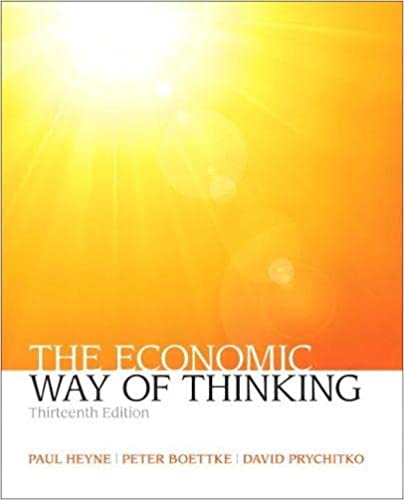
The Economic Way of Thinking 13th Edition by David Prychitko, Peter Boettke, Paul Heyne
Edition 13ISBN: 9780132992695
The Economic Way of Thinking 13th Edition by David Prychitko, Peter Boettke, Paul Heyne
Edition 13ISBN: 9780132992695 Exercise 9
Here is a statement from the textbook by Francis Wayland that was the most widely used economics text in American colleges before 1860: The qualities and relations of natural agents are the gift of God, and, being His gift, they cost us nothing. Thus, in order to avail ourselves of the momentum produced by a waterfall, we have only to construct the water-wheel and its necessary appendages, and place them in a proper position. We then have the use of the falling water, without further expense. As, therefore, our only outlay is the cost of the instrument by which the natural agent is rendered available, this is the only expenditure which demands the attention of the political economist.
(a) What was the cost to a nineteenth-century mill owner of using a waterfall to power his mill if he owned the site of the waterfall?
(b) What was the cost to the mill owner if someone else owned the site?
(c) Under what circumstances would use of a waterfall to power a mill actually have cost nothing?
(d) Why do modern "political economists" disagree with Francis Wayland and pay attention to the cost of using "natural agents?"
(a) What was the cost to a nineteenth-century mill owner of using a waterfall to power his mill if he owned the site of the waterfall?
(b) What was the cost to the mill owner if someone else owned the site?
(c) Under what circumstances would use of a waterfall to power a mill actually have cost nothing?
(d) Why do modern "political economists" disagree with Francis Wayland and pay attention to the cost of using "natural agents?"
Explanation
Cost refers to the amount of money that...
The Economic Way of Thinking 13th Edition by David Prychitko, Peter Boettke, Paul Heyne
Why don’t you like this exercise?
Other Minimum 8 character and maximum 255 character
Character 255


